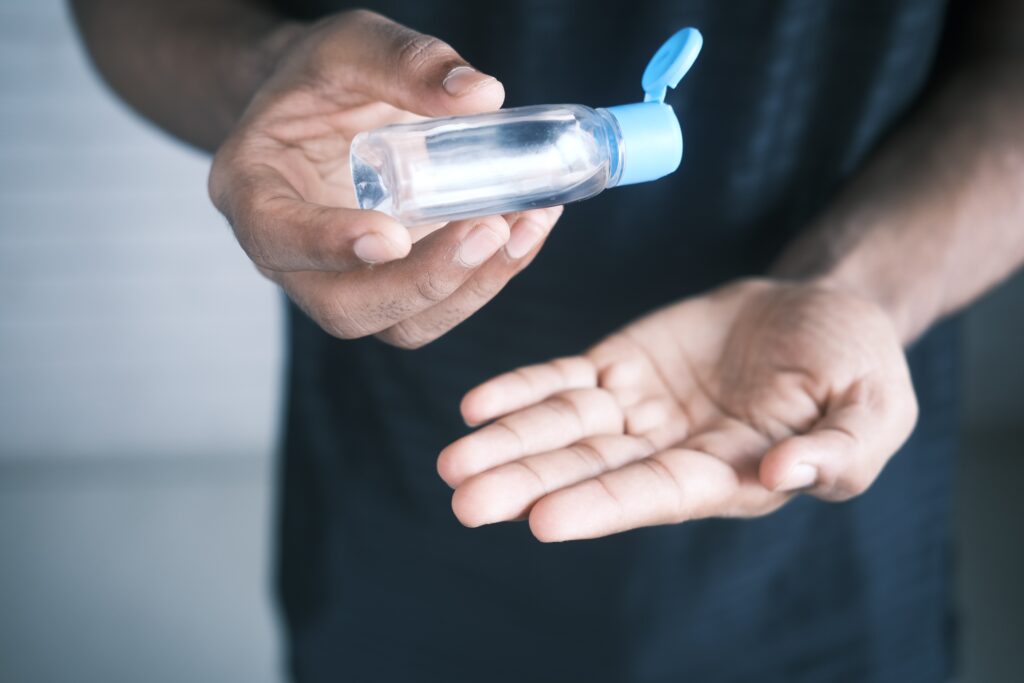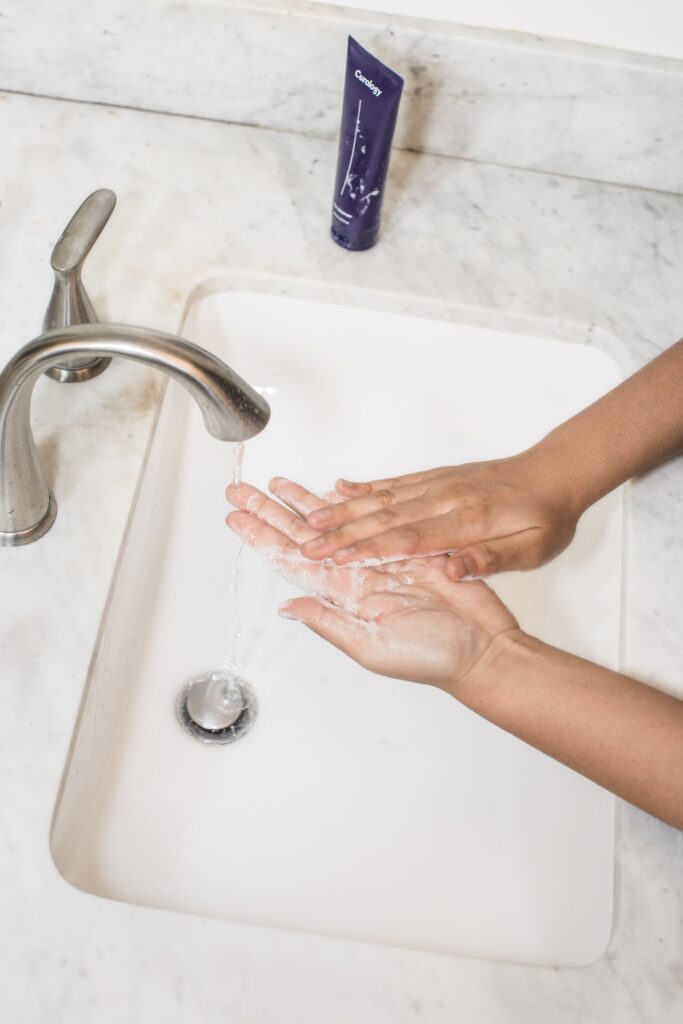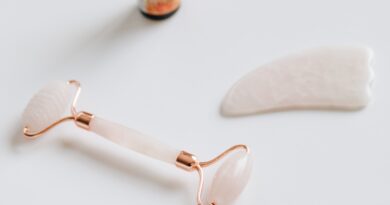Pre-Teen Hygiene And Self-Care: Teaching Healthy Habits And Routines
In this article, you will discover the importance of teaching pre-teens healthy hygiene habits and self-care routines. As pre-teens undergo significant physical and emotional changes, it becomes crucial to equip them with the necessary knowledge and skills to take care of their bodies and foster good hygiene practices. From the basics of daily grooming to understanding the importance of regular handwashing and dental care, this article will provide you with practical tips and guidance to help your pre-teen develop lifelong habits that promote their overall wellbeing.

Importance of Pre-Teen Hygiene and Self-Care
Understanding the physical and emotional changes during pre-teen years
During the pre-teen years, also known as the “tween” stage, children undergo significant physical and emotional changes as they transition from childhood to adolescence. These changes can often be overwhelming for them, and it is crucial to provide guidance and support during this time. Understanding the physical and emotional changes can help parents and caregivers better address their pre-teens’ needs and teach them the importance of hygiene and self-care.
Physically, pre-teens may experience the onset of puberty, which includes hormonal changes, the development of secondary sexual characteristics, and growth spurts. Alongside these physical changes, pre-teens may also experience emotional highs and lows. They may be more self-conscious about their appearance or struggle with peer pressure and self-esteem. By understanding and acknowledging these changes, we can offer pre-teens the tools they need to navigate this stage with confidence and positivity.
The role of hygiene and self-care in pre-teen development
Hygiene and self-care play a crucial role in the overall development of pre-teens. By establishing healthy habits and routines early on, we can help pre-teens maintain good physical and mental health, while also boosting their self-esteem and confidence. Teaching pre-teens about hygiene and self-care empowers them to take control of their bodies and promotes a positive self-image.
Practicing good hygiene habits can prevent the spread of germs and illnesses, as well as maintain overall cleanliness. It also contributes to personal grooming, ensuring pre-teens feel comfortable and at ease in their own bodies. Additionally, self-care activities such as bathing, brushing teeth, and skincare routines promote relaxation, a sense of well-being, and can be valuable moments of self-reflection and self-care.
Building self-esteem and confidence through hygiene and self-care
Promoting good hygiene and self-care habits can have a significant impact on pre-teens’ self-esteem and confidence levels. When children feel clean, refreshed, and well-groomed, it positively affects their self-perception. It can boost their confidence in social settings, improve their relationships with peers, and enhance their overall emotional well-being.
By teaching pre-teens the importance of self-care, we instill in them the notion that they are worth investing time and effort into. It sends the message that taking care of themselves is important and that prioritizing their well-being is a valuable aspect of their daily lives. Empowering pre-teens to take charge of their hygiene and self-care routines ultimately helps them develop a positive self-image and a sense of self-worth.
Establishing Daily Hygiene Routines
Teaching the importance of regular bathing or showering
One of the key aspects of pre-teen hygiene is teaching the importance of regular bathing or showering. Encourage pre-teens to bathe or shower daily to keep their bodies clean and fresh. Explain that taking the time to cleanse their bodies helps remove dirt, sweat, and bacteria that can accumulate throughout the day. Stress the importance of utilizing soap and shampoo to thoroughly clean the entire body, including hard-to-reach areas.
Make the bathing experience enjoyable for pre-teens by providing them with their favorite scented soaps or shower gels. Encourage them to use a washcloth or loofah to exfoliate their skin gently. By emphasizing the benefits of regular bathing, such as feeling refreshed and smelling pleasant, you can motivate pre-teens to make personal hygiene a daily priority.
Developing a tooth brushing routine
Developing a tooth brushing routine is another crucial aspect of pre-teen hygiene. Teach pre-teens the importance of brushing their teeth at least twice a day – once in the morning and once before bed. Explain that regular brushing not only helps maintain a bright smile but also prevents cavities, gum disease, and other oral health issues.
Demonstrate the proper technique for brushing, emphasizing the importance of spending at least two minutes brushing all surfaces of the teeth. Encourage pre-teens to use fluoride toothpaste and show them how to properly and gently brush their gums, tongue, and the roof of their mouth. Introduce them to flossing as well, explaining how it removes food particles and plaque from between the teeth.
Hair care and grooming practices for pre-teens
Hair care and grooming are essential aspects of pre-teen hygiene. Teach pre-teens to care for their hair by establishing a regular washing routine. Explain that clean hair not only looks and smells better but also promotes a healthy scalp. Encourage the use of appropriate hair care products suited for their hair type, such as mild shampoos and conditioners.
Teach pre-teens to gently shampoo their hair, ensuring they rinse thoroughly to remove any residue. Emphasize the importance of conditioning to keep the hair moisturized and manageable. Demonstrate how to comb their hair gently, starting from the ends to prevent breakage. Encourage pre-teens to develop their own hairstyle preferences and experiment with different looks to foster self-expression.
Teaching Proper Handwashing Techniques
Explaining the importance of hand hygiene
Hand hygiene is crucial to prevent the spread of germs and illnesses, making it essential to teach pre-teens proper handwashing techniques. Explain to them that germs can easily transfer from their hands to their eyes, nose, or mouth, causing illnesses. Emphasize the importance of regular handwashing, particularly before meals, after using the restroom, and after playing outside or attending public places.
Demonstrating step-by-step handwashing technique
To teach pre-teens proper handwashing techniques, demonstrate a step-by-step process they can easily follow. Show them how to wet their hands with clean, running water, then apply soap and create a good lather. Guide them to scrub their hands thoroughly, including the back of their hands, between their fingers, and under their nails. Encourage them to do this for at least 20 seconds, which can be timed by singing a familiar song or using a timer.
After scrubbing, ensure they rinse their hands under clean running water and dry them with a clean towel or air dry. Reinforce the importance of not touching surfaces or objects after washing hands, as it can reintroduce germs. It is also helpful to provide pre-teens with their own hand sanitizer for situations where soap and water may not be readily available.
Encouraging handwashing at key times throughout the day
To further establish good hand hygiene habits, encourage pre-teens to wash their hands at key times throughout the day. Remind them to wash their hands before and after meals, after using the restroom, after sneezing or coughing into their hands, and after playing with pets or handling objects that may be dirty. By incorporating handwashing into their daily routines, pre-teens can reduce the risk of getting sick and promote their overall well-being.
Understanding the Importance of Oral Hygiene
The impact of oral hygiene on overall health
Oral hygiene plays a vital role in pre-teens’ overall health. Educate them about the important connection between oral health and general well-being. Explain that poor oral hygiene can lead to various dental issues, including cavities, gum disease, bad breath, and even tooth loss. By maintaining good oral hygiene practices, pre-teens are more likely to have strong, healthy teeth and gums, reducing the need for invasive dental procedures.
Teaching proper toothbrushing techniques and frequency
Teaching pre-teens proper toothbrushing techniques is essential for maintaining good oral hygiene. Emphasize the importance of brushing their teeth at least twice a day for two minutes each time. Encourage them to use a soft-bristle toothbrush and a fluoridated toothpaste to effectively remove plaque and food particles.
Demonstrate the correct brushing technique, moving the toothbrush in gentle, circular motions to clean all surfaces of the teeth. Teach them to brush their tongue as well to remove bacteria and freshen breath. Inform pre-teens about the importance of replacing their toothbrush every three to four months or sooner if the bristles become frayed.
Promoting regular dental check-ups and hygiene appointments
In addition to daily oral hygiene practices, stress the importance of regular dental check-ups and hygiene appointments. Arrange for pre-teens to visit a dentist every six months to have a thorough evaluation of their oral health. These visits allow dentists to identify and address any dental issues before they worsen.
Promote the significance of dental cleanings done by dental hygienists to remove plaque and tartar buildup. Reinforce that these professional cleanings not only contribute to oral health but also prevent bad breath and gum disease. By encouraging pre-teens to prioritize regular dental visits, you help establish long-term habits that contribute to their overall oral health.

Promoting Healthy Hair Care Practices
Choosing the right hair care products for pre-teens
Choosing the right hair care products for pre-teens is crucial to maintain healthy and manageable hair. Teach pre-teens to select mild shampoos and conditioners that suit their hair type. Explain the importance of reading product labels to avoid harsh chemicals or ingredients that may cause damage or irritation to the scalp and hair.
Encourage pre-teens to use products that are free from sulfates and parabens, as these can strip the hair of its natural oils and cause dryness. Help them understand the benefits of hair care products formulated specifically for their hair needs, such as moisturizing shampoos for dry hair or volumizing products for those with fine hair. By choosing the right hair care products, pre-teens can maintain healthy, shiny hair.
Teaching proper hair washing techniques
Teaching pre-teens proper hair washing techniques is essential to prevent hair and scalp issues. Instruct them to wet their hair thoroughly with warm water before applying shampoo. Demonstrate how to massage the shampoo gently into the scalp, focusing on the roots to remove excess oil and dirt. Encourage them to rinse their hair until the water runs clear, ensuring all shampoo is removed.
Explain the importance of conditioning to help nourish and soften the hair. Teach pre-teens to apply conditioner mainly to the ends of their hair, avoiding the scalp to prevent greasiness. Show them how to leave the conditioner on for a few minutes before rinsing thoroughly. By teaching proper hair washing techniques, pre-teens can maintain clean and healthy hair while avoiding issues such as dandruff or an oily scalp.
Preventing and treating common scalp conditions in pre-teens
Pre-teens can experience common scalp conditions such as dandruff and itchiness. Educate them about these conditions, explaining that they are treatable and not something to be embarrassed about. Emphasize the importance of gentle scalp care to prevent and alleviate these issues.
Teach pre-teens to avoid scratching their scalp vigorously, as it can cause further irritation. Encourage them to use a mild anti-dandruff shampoo when necessary, following the instructions on the bottle. Explain that consistent use of the appropriate shampoo can help control and reduce flakes and itchiness. If scalp conditions persist, advise pre-teens to consult a dermatologist or their healthcare provider for further guidance and treatment.
Introducing Skincare and Sun Protection
Teaching pre-teens about the importance of skincare
Introducing pre-teens to skincare is an essential step in their hygiene and self-care routine. Explain the importance of maintaining healthy skin and how it contributes to their overall well-being. Teach them that proper skincare involves cleansing, moisturizing, and protecting the skin from the sun’s harmful rays.
Encourage pre-teens to understand their skin type and choose skincare products accordingly. Emphasize that skincare is not only about appearance but also about maintaining a clean and healthy complexion. By instilling these values early on, pre-teens can develop lifelong habits that promote healthy skin.
Developing a basic skincare routine for pre-teens
Help pre-teens develop a basic skincare routine that is simple yet effective. Teach them the importance of washing their face twice a day – once in the morning and once before bed – to remove dirt, oil, and environmental pollutants. Show them how to choose a gentle cleanser suitable for their skin type and demonstrate proper face washing techniques.
Explain the benefit of moisturizing their skin after cleansing to keep it hydrated and protected. Introduce them to a lightweight, non-comedogenic moisturizer and instruct them to apply it evenly to their face and neck. Reinforce the importance of protecting their skin from the sun by using a broad-spectrum sunscreen with at least SPF 30 for daily outdoor activities.
Teaching proper sun protection practices and the use of sunscreen
Teaching pre-teens about proper sun protection practices is crucial for safeguarding their skin from the harmful effects of the sun. Explain that overexposure to the sun’s ultraviolet (UV) rays can lead to sunburn, premature skin aging, and an increased risk of skin cancer later in life. Emphasize the importance of regularly applying sunscreen, even on cloudy or cooler days.
Teach pre-teens how to choose a sunscreen with broad-spectrum protection, which shields against both UVA and UVB rays. Instruct them to apply sunscreen generously to all exposed areas of their body, including the face, neck, arms, and legs. Encourage them to reapply sunscreen every two hours, especially after swimming or excessive sweating. By understanding the importance of sun protection, pre-teens can develop habits that protect their skin for a lifetime.

Addressing Body Odor and Perspiration
Explaining the causes of body odor during pre-teen years
As pre-teens reach puberty, one of the changes they experience is the onset of body odor. Explain to them that body odor is a natural part of the physical changes happening in their bodies. The sweat glands become more active during puberty, producing sweat that can mix with bacteria on the skin, leading to an unpleasant odor.
Reassure pre-teens that body odor can be managed effectively with proper hygiene practices and the use of appropriate products. By addressing their concerns and normalizing the experience, you can help them navigate this aspect of their development with confidence.
Teaching proper hygiene practices for managing body odor
Teaching pre-teens proper hygiene practices is crucial for managing body odor effectively. Instruct them to shower or bathe regularly to keep their bodies clean and fresh. Emphasize the importance of washing areas prone to sweat, such as armpits, groin, and feet, as these areas are more likely to develop body odor.
Demonstrate how to use a mild soap or body wash to cleanse these areas thoroughly. Encourage pre-teens to use a gentle washcloth or sponge to facilitate cleanliness. Teach them to dry these areas well, as bacteria thrive in moist environments. Reiterate the importance of changing into clean clothes daily and using breathable fabrics to minimize sweating and the risk of body odor.
Discussing the use of deodorants and antiperspirants
Deodorants and antiperspirants are essential tools in managing body odor for pre-teens. Explain the difference between the two products, with deodorants helping to mask odor and antiperspirants working to reduce sweat production. Discuss their options and let them choose the product that suits their needs and preferences.
Guide pre-teens on the proper application of deodorants or antiperspirants. Teach them to apply the product to clean, dry skin, specifically to the underarms. Encourage them to read the instructions and use the appropriate amount, reminding them to reapply as needed throughout the day. By teaching pre-teens the importance of managing body odor responsibly, they can feel confident and comfortable in their daily interactions.
Teaching Pre-Teens about Menstrual Hygiene
Explaining menstruation and its importance in female development
When addressing pre-teen girls, it is important to teach them about menstruation and its significance in female development. Explain that menstruation is a natural process that occurs as part of a woman’s menstrual cycle, preparing the body for potential pregnancy each month. Emphasize that menstruation is a normal and healthy aspect of their bodies maturing.
Normalize the topic by discussing it openly and answering any questions pre-teen girls may have. Help them understand that menstruation is a time when the body undergoes changes and that their reproductive health is an essential aspect of their overall well-being. By providing this knowledge, pre-teen girls can approach menstruation with confidence and without unnecessary anxiety.
Teaching pre-teens about menstrual hygiene products
Education on menstrual hygiene products is crucial in preparing pre-teen girls for their periods. Introduce them to various options, such as pads and tampons, and explain how each product works. Emphasize that choosing the right product depends on personal preference, comfort, and convenience.
Demonstrate the proper usage of each product, highlighting the importance of changing them regularly to maintain cleanliness and prevent odor or infection. Teach pre-teen girls how to dispose of used products hygienically, whether it is wrapping them and placing them in designated bins or flushing tampons as instructed.
Promoting open communication and addressing concerns
Creating an environment of open communication is essential when discussing menstrual hygiene with pre-teen girls. Let them know that they can come to you with any questions or concerns they may have. Reassure them that it is normal to feel a range of emotions during their menstrual cycle and that you are there to support them through this journey.
Address any concerns they may have, such as pain or discomfort during menstruation, irregular periods, or other related issues. Encourage pre-teen girls to track their menstrual cycles, helping them understand their bodies and identify any changes or irregularities that may need medical attention. By fostering open communication, you empower pre-teen girls to take control of their menstrual health and well-being.
Encouraging Healthy Nail and Foot Care
Teaching proper nail care techniques
Proper nail care is essential for pre-teens to maintain healthy nails and prevent common issues such as ingrown nails or infection. Teach pre-teens to trim their nails regularly, shaping them to their desired length. Emphasize the importance of using clean nail clippers or scissors and instruct them to avoid cutting their nails too short to prevent pain or injury.
Demonstrate the proper technique for filing nails, showing pre-teens how to shape their nails gently in one direction to prevent splitting or cracking. Discourage them from biting their nails, as it can introduce bacteria into the mouth and damage the nail bed. Reinforce the importance of clean hands and nails to prevent the spread of germs.
Addressing common nail and foot issues in pre-teens
Pre-teens may experience common nail and foot issues, such as fungal infections or calluses. Address these issues and teach pre-teens how to prevent and manage them. Emphasize the importance of proper foot hygiene, such as washing and drying feet thoroughly, especially between the toes.
Teach pre-teens to wear clean socks made of breathable materials and properly fitting shoes to prevent fungal growth and discomfort. Discuss the value of moisturizing their feet regularly to prevent dryness and cracks. Encourage them to address any foot or nail issues promptly by seeking advice from a healthcare professional.
Promoting the importance of wearing proper footwear
Promoting the importance of wearing proper footwear is crucial for pre-teens’ foot health. Explain that ill-fitting or inappropriate footwear can lead to discomfort, foot problems, and pain. Encourage pre-teens to wear shoes that provide proper support and cushioning, especially during physical activities or sports.
Teach them to choose shoes made of breathable materials that allow air circulation to keep the feet fresh and dry. Emphasize the importance of selecting the right shoe size and avoiding hand-me-downs or worn-out shoes. By promoting the importance of proper footwear, you can help pre-teens prevent foot-related issues and discomfort.
Building Healthy Sleep and Rest Habits
Understanding the importance of quality sleep for pre-teens
Quality sleep is essential for pre-teens’ overall well-being and development. Help them understand that adequate sleep is crucial for physical growth, brain development, and emotional well-being. Explain that during sleep, the body repairs and recharges itself, allowing for better concentration, mood regulation, and overall health.
Discuss the recommended amount of sleep for pre-teens, which ranges from 9 to 12 hours per night. Stress the importance of establishing a consistent sleep schedule and creating a nighttime routine that promotes relaxation and prepares the body for restful sleep. By prioritizing quality sleep, pre-teens can enhance their overall performance and well-being.
Establishing a regular sleep schedule
Establishing a regular sleep schedule is important for pre-teens to maintain healthy sleep habits. Encourage them to go to bed and wake up at consistent times, even on weekends. Explain that maintaining a consistent sleep schedule helps regulate their body’s internal clock, making it easier to fall asleep and wake up naturally.
Teach pre-teens to wind down before bed by participating in calming activities such as reading, journaling, or listening to relaxing music. Encourage them to avoid electronic screens, caffeine, and stimulating activities close to bedtime, as these can interfere with falling asleep. By establishing a regular sleep schedule, pre-teens can enjoy more restful nights and wake up feeling refreshed in the mornings.
Creating a peaceful and comfortable sleep environment
Creating a peaceful and comfortable sleep environment is essential for encouraging quality sleep in pre-teens. Guide them in optimizing their sleep space by minimizing distractions and ensuring the bedroom is dark, cool, and quiet. Explain the importance of a comfortable mattress, pillows, and bedding.
Encourage pre-teens to establish a relaxing bedtime routine, which can include activities such as taking a warm bath, practicing deep breathing exercises, or listening to calming music. Teach them the benefits of creating a peaceful environment that promotes relaxation and signals to the body that it is time to rest. By creating a conducive sleep environment, pre-teens can enjoy a more restful and rejuvenating sleep experience.
In conclusion, teaching pre-teens about hygiene and self-care is essential for their overall development. By understanding the physical and emotional changes during this stage, we can guide them in establishing daily hygiene routines. Proper handwashing techniques, oral hygiene, hair care practices, skincare and sun protection, managing body odor, menstrual hygiene, nail and foot care, and the importance of quality sleep should all be addressed to promote pre-teens’ well-being and self-confidence. By providing them with the knowledge and tools they need, we empower pre-teens to navigate this stage of their lives with confidence and a positive self-image.




